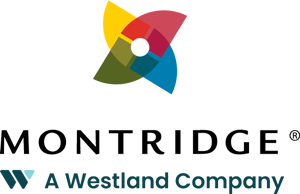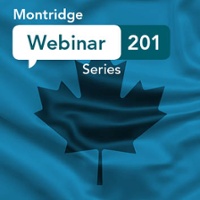Do you have employees stationed north of the border? Are you ready to implement a Canadian benefits plan?
In our blog, Canadian Benefits 101: Advice for Foreign-Based Employers, we discussed how Canada’s healthcare landscape is unique in many ways. So when looking at employee benefits in Canada, creating the right plan for your needs can be challenging.
Luckily, it doesn’t have to be. In this blog, we’ll break down the process, so you can better understand the next steps. Let’s get started.
First things first: Why is it important to have a Canada-based employee benefits advisor?
When it comes to your Canadian benefits plan, the expression “think globally, act locally” couldn’t be more accurate. Make sure you find a benefits advisor who is based in Canada, and who maintains your employee data in an appropriate fashion – for example, by using a Canadian-based cloud.
Unfortunately, Canada’s privacy legislation doesn’t align well with regulations in the US. You can save yourself a lot of trouble by choosing an advisor who really understands this and knows how to manage this process.
What are the key factors to consider when designing your Canadian plan?
Selecting the right Canadian benefits plan requires some careful considerations. To ensure you are getting the best value possible, discuss the following components with your advisor:
Geographical Location
Take into account the unique properties of the labour market where your employees work, the government programs that are already in place, and the cost of living in the market where your staff are based. Your Canadian plan should not simply replicate your domestic plan.
Company Values
Make sure your advisor is aware of your corporate philosophy when designing your plan. Add in some benchmarking and market know-how, and brainstorm a few ideas for attracting and retaining the employees you need.
Unionization
Are your Canada-based employees unionized? If so, your Collective Agreement will be your roadmap! Make sure you know the existing terms around eligibility, benefits, and premium structure, and ask your advisor to note these upfront in your Request for Proposal (RFP).
How to start creating a Canadian employee benefits package?
Build a Request for Proposal with Your Advisor
In order for an advisor to assess your company and craft a Request for Proposal (RFP), they’ll require some essential information. Make sure you can provide a Canadian bank account number, key employer information, and an employee census.

Employer Information
If you already have a Canadian benefits plan and are simply looking for a new insurer, you must disclose the details of your existing plan before moving forward. Be prepared to provide rates for all benefits and a full claims history for the last three years. But don’t worry: you can find all of this information on the last two renewals you received from your current carrier or advisor.
Employee Census
For a full list of items that should be included in the employee census and help compiling them efficiently, you can download our employee census template. There are a few types of employees worth noting:
- Independent contractors: These staff are usually registered as a separate class, and are usually eligible for a fixed amount of life insurance and AD&D benefits, along with health and dental coverage. However, think twice about offering disability coverage, as contractors don’t have employment income given their status as independent operators.
- Temporary foreign workers / visa holders: Make sure you note each employee’s visa information on your RFP, including when it was issued and when it will expire. In many cases, disability will not be offered to staff who are working under a visa.
- Employees on leave (disability, unpaid leave, or maternity/paternity): On your RFP, be sure to note the last day each person worked, their reason for leave, and their expected return date. Note that employees on leave may not be eligible for benefits until they are actively back at work.
Get your advisor to help you implement the benefits plan
Once you’ve discussed various proposals with your advisor, brought them to your management team, created hybrid options, and decided on a plan, how do you make it a reality?
There are several final elements that your insurer will require to implement your plan, such as a master application, payment, and employee enrolment forms. The whole process will take about 4-6 weeks, so make sure you plan accordingly.
Conclusion
At the end of the day, choosing the right plan starts with choosing the right advisor. Remember: finding someone based in Canada is strongly recommended, especially if you’ve never gone through the process before.
With a solid understanding of the Canadian benefits system, and the right person to walk you through it, you’ll be well on your way to success.
Unsure how to find the right employee benefits advisor for your company? Download our free webinar recording.









